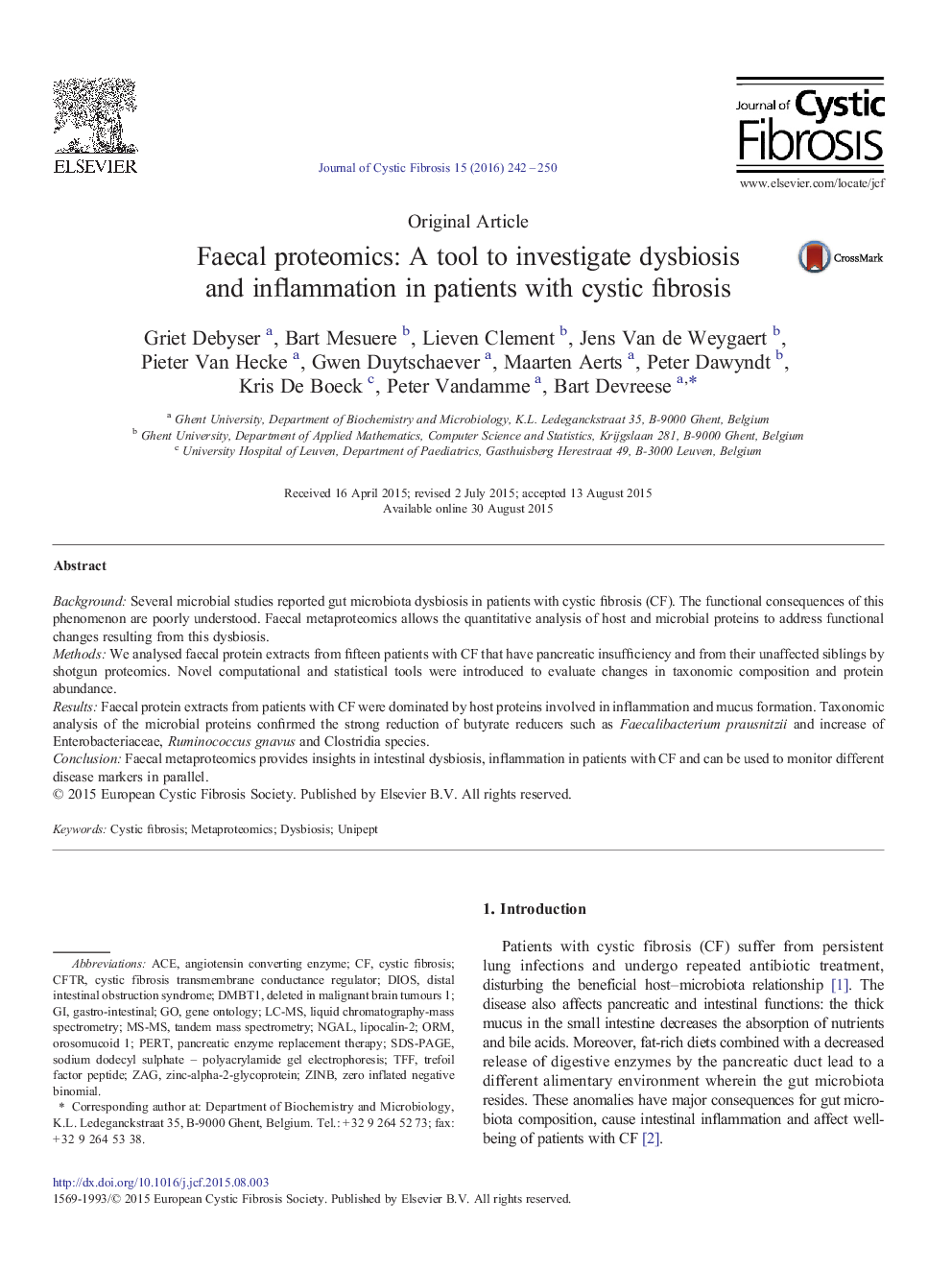| Article ID | Journal | Published Year | Pages | File Type |
|---|---|---|---|---|
| 6240289 | Journal of Cystic Fibrosis | 2016 | 9 Pages |
BackgroundSeveral microbial studies reported gut microbiota dysbiosis in patients with cystic fibrosis (CF). The functional consequences of this phenomenon are poorly understood. Faecal metaproteomics allows the quantitative analysis of host and microbial proteins to address functional changes resulting from this dysbiosis.MethodsWe analysed faecal protein extracts from fifteen patients with CF that have pancreatic insufficiency and from their unaffected siblings by shotgun proteomics. Novel computational and statistical tools were introduced to evaluate changes in taxonomic composition and protein abundance.ResultsFaecal protein extracts from patients with CF were dominated by host proteins involved in inflammation and mucus formation. Taxonomic analysis of the microbial proteins confirmed the strong reduction of butyrate reducers such as Faecalibacterium prausnitzii and increase of Enterobacteriaceae, Ruminococcus gnavus and Clostridia species.ConclusionFaecal metaproteomics provides insights in intestinal dysbiosis, inflammation in patients with CF and can be used to monitor different disease markers in parallel.
